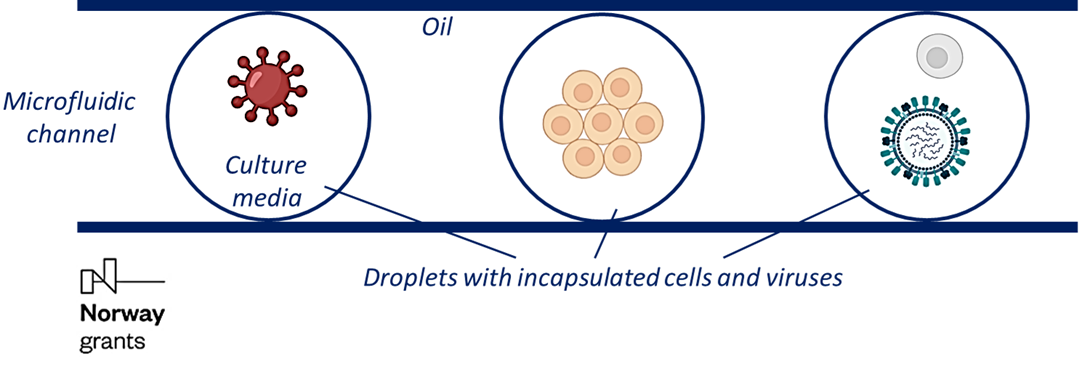Interaction of natural killer cells with infected cancer cell population: microfluidics-based experiments and single-cell-level mathematical modelling.
ImmuneDroplets project aims at broadening our fundamental understanding about the interaction between virus-infected lung cells and cells of the innate immune system, specifically Natural Killer (NK) cells. Identifying the specific events at the cellular level that trigger life-threatening development of lung infection, as opposed to those combating this infection and returning to a healthy state is in the core of the project. In addition, the new knowledge about interaction between NK cells and virus infected lung cancer cells may give implications for future cancer therapies.
To address the ambitious experimental goals of the project there will be developed a droplet microfluidic platform for long-term culturing of adherent lung epithelial cells. This biocompatible platform will facilitate precise control over the delivery of virus particles, NK cells and signalling molecules to the seeded epithelial cells. Furthermore, the platform will allow direct monitoring of the interaction between NK cells and different subpopulations of epithelial cells throughout the infection development at a single cell level. Fabrication of such a platform faces multiple technological challenges (e.g. including precise control over surface wetting properties) solving which will result in a universal platform for both long-term cell culture experiments and efficient control over operations with droplets at microscale.
The ImmuneDroplets consortium consists of two partners: IPPT PAN (Poland) and SINTEF (Norway). SINTEF's role in the project is to design and manufacture the microfluidic platform for the co-culture experiments described above, while IPPT PAN will perform the biological and microfluidic experiments as well as mathematical modelling at a single-cell level. This project received funding from the GRIEG program.

